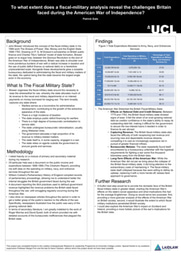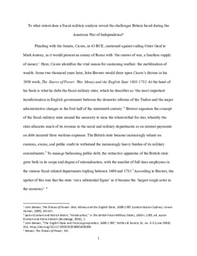Leadership-In-Action; Working At TSN Boston
Project Goals and Objectives
‘Local Power. Unlimited Possibilities.’ This parallelism functions as a call to action and a deontic imperative. For the Timothy Smith Network (TSN), merely advocating for the technological empowerment of local communities is insufficient. The organisation is duty-bound to actively facilitate the change it promotes. Actions speak louder than any PowerPoint presentation or slick marketing material. It is the mission of TSN to bridge the digital divide by creating opportunities for people of all ages to access technology education, a sine qua non for achieving true technological empowerment. Through the Boston Design Academy (BDA) and its subsidiary programmes, Digital Design Intensive (DDI), Elevating Agriculture Technology (EAT), and Tech Your Health (TYH), TSN actualises the demands laid out in its value statement. In partnership with the City of Boston, Microsoft, Boston Public Library, and Boston Public Schools (BPS), the BDA initiative allows high school students to explore potential career pathways through project-based learning and collaborations with institutions, companies, and individuals that drive Boston’s innovation ecosystem. Students are provided with supplies, equipment, and training to enhance their understanding of applied science, technology, engineering, arts, and mathematics. In so doing, TSN gives local students the tools to create for themselves unlimited possibilities. Over six weeks, students are taught the fundamentals of design and computer programming. With these tools, they were then set free into the sandbox of design, given the creative license to dream up technological solutions to real-world problems. This freedom came with one condition: they must create this product themselves. They create the proposals, develop the designs, and write the code.
Project Outcomes
I learned a great deal while working at TSN as part of the administration team. My key takeaways are threefold. First, I now have a better appreciation of corporate bureaucracy. Certain tasks that one might feel could, and indeed should, be completed quickly must first be approved by multiple people before they can be implemented on the ground. Secondly, I gained a deeper understanding of workplace hierarchy. One particular incident is worthy of note: after interviewing my fellow scholars, my colleague and I sought to bring their complaints to upper management. The following day, however, we were pulled aside by one of the paid TSN staff members on the ground. In no uncertain terms, we were told that all future complaints should go through her; it was her decision whether it was pertinent to present them to upper management. She emphasised that our primary responsibility was administration and ensuring the programme ran smoothly; it was above our station to submit formal complaints to upper management without her express consent. In sum, respect the hierarchy and always—without exception—make your boss look good. Finally, this project highlighted the importance of patience. As the programme involved working with high school students, it was unsurprising that some were disappointed to be spending their summer in a classroom learning to code in Python. Consequently, phone use became a significant issue, with some students starting to fall behind. As a university student myself, I sympathise with students who are tired, bored, or both, and therefore take occasional breaks to check their phones. However, when this negatively affects their progress in the programme and disrupts the learning environment, I felt it necessary to bring this to the attention of upper management. With this in mind, I drafted a message to my superiors, stressing the need for punitive action against a specific student whose phone use was not only causing him to fall behind but also displayed blatant disrespect to the scholars who had worked hard to prepare the class material. Yet, I was later informed of certain extenuating circumstances that, while not entirely excusing his behaviour, nonetheless explained it. Moving forward, I have learned never to act in anger or without fully understanding the situation. In conclusion, my experiences at TSN were fruitful and have prepared me well for working in an office setting.


Please sign in
If you are a registered user on Laidlaw Scholars Network, please sign in